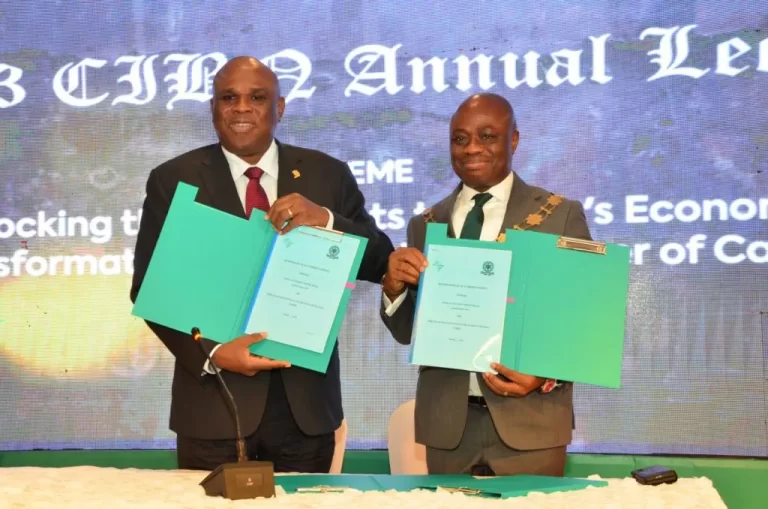APA – Lagos (Nigeria)
The President of the African Export-Import Bank (Afreximbank), Prof. Benedict Oramah, has canvassed the creation of a Domestic Financial System that will enable Africa to develop, prosper and earn global respect.
Speaking at the annual lecture of the Chartered Institute of Bankers of Nigeria (CIBN) on Wednesday in Lagos, Oramah noted that Africa may be rich in natural resources, but leveraging that wealth is determined by investors, who control the capital required to bring them to the market.
“It is therefore, important that we build a Domestic Financial System that welcomes foreign banks, but which, as a deliberate policy, must have the strong participation of African banks,’’ he said.
He, however, stated the need to welcome foreign banks and that the space must not be completely ceded to them if we (Africans) hope to drive development in our desired direction.
Oramah wondered why Africans are still hooked on grants and begging all the time, despite over six decades of their independence.
According to him, there is no reason why Africa’s money should be spent outside Africa.
He disclosed that Africa has about $500 billion, which is about half of Africa’s external debts today, stashed away in foreign banks but these same African countries cannot borrow from the same foreign banks holding their resources.
He explained that the excuses of compliance complication and country risk constraints that are hardly mentioned when the funds are being deposited, have made it impossible for Africans to borrow from the same foreign banks holding the resources.
“It is in the context of this foregoing that the topic of today’s lecture “Unlocking the Constraints to Africa’s Economic Transformation: Insights into the Power of Capital’’ is apt and opportune.
“Without any doubt, capital represents the foundation on which a viable economic transformation can be built and why ownership of capital is necessary, it is its control that provides sufficient condition for capital to become an effective factor of production that can deliver development,” local media reports quoted Oramah as saying.
GIK/APA
Afreximbank boss canvasses domestic financial system for Africa’s development


